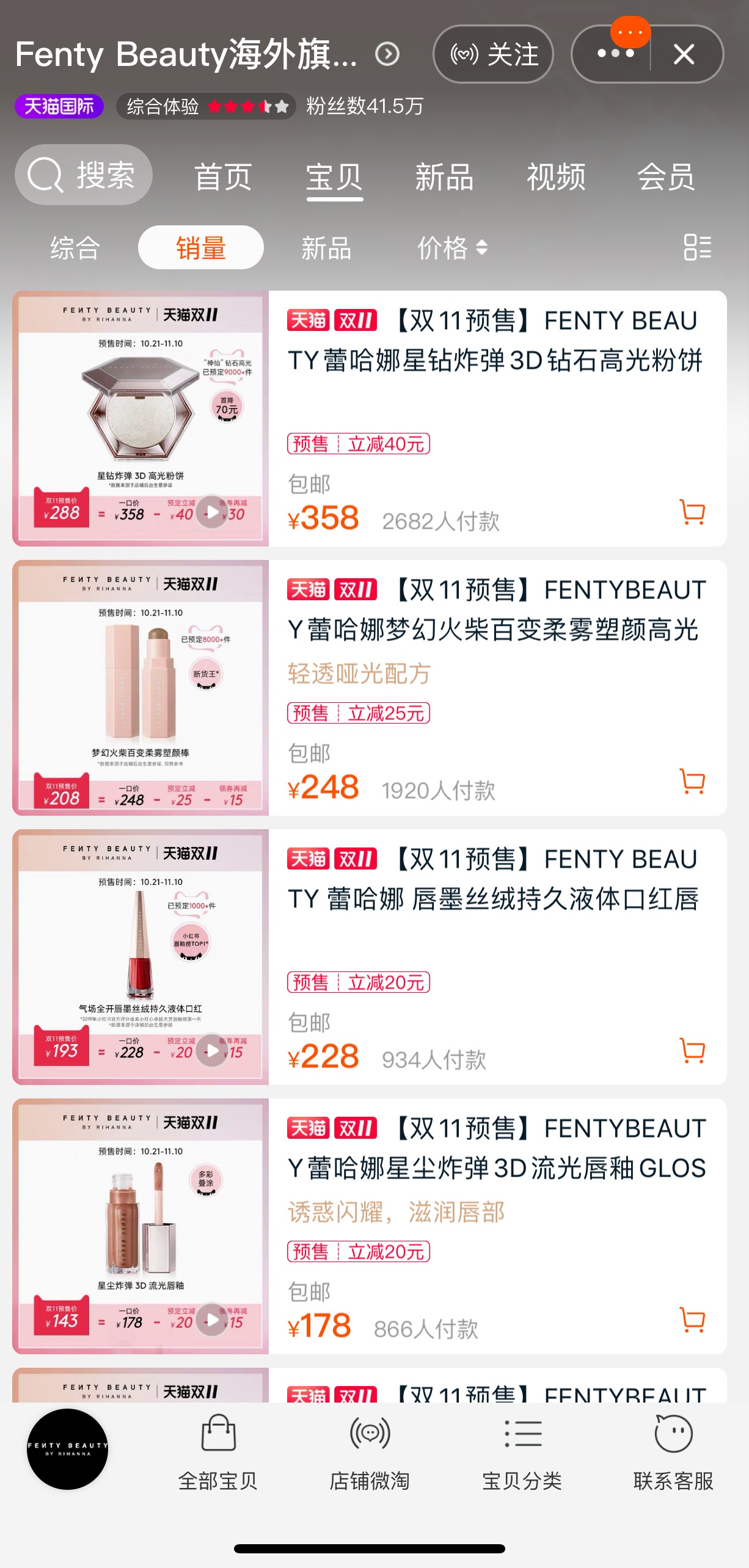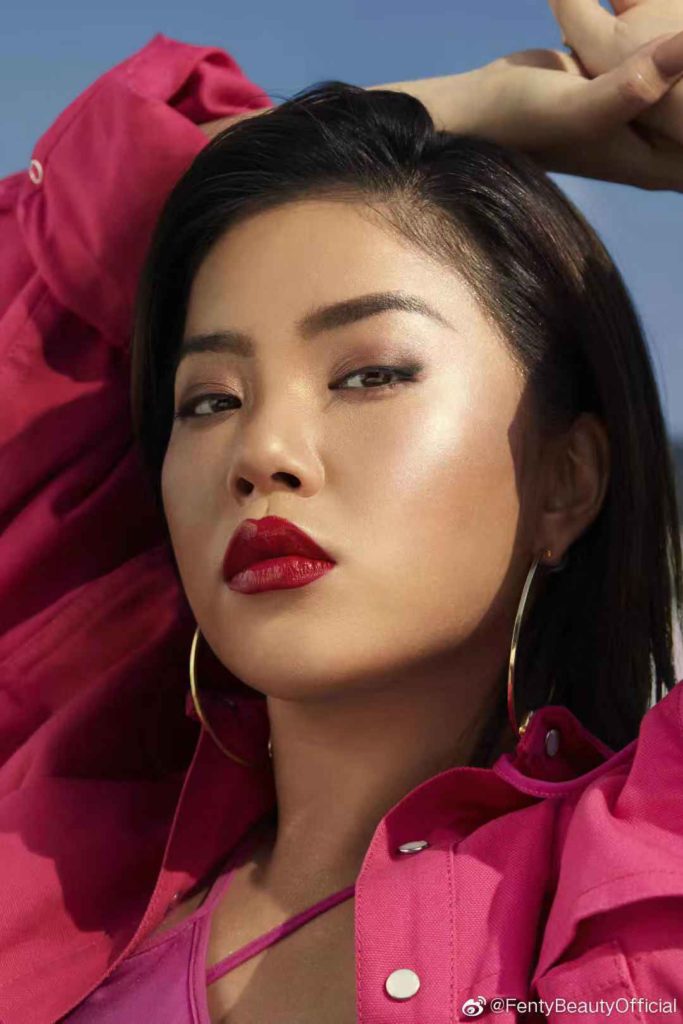Since Rihanna confirmed that her make-up line is 100% cruelty-free, Fenty Beauty was in the absence of the Chinese cosmetic market for two years. However, two years after its launched in 2017, Fenty beauty officially landed in China via Tmall Global, Alibaba’s e-commerce site on September 3rd. Also, it expanded its retail distribution in Hong Kong, Macau at T Galleria by DFS, Sephora, Harvey Nichols, Beauty Bazaar, and Beauty Avenue and other parts of Asia.

In fact, two months ago, Fenty Beauty has already registered its official account on Weibo with its first online campaign, “New Generation of Beauty”. Collaborating with Chinese pop singers Wangju who has tan skin and slightly full-figured body shape, Fenty Beauty intended to challenge traditional Chinese definition of beauty, such as skinny and light skin. Likewise, it also registered the account on Little Red Book (RED), a popular social media and e-commerce platform in China.

However, unlike its great success in the U.S. market, Fenty Beauty didn’t make a big hit in the Chinese market. It only has less than 9000 followers on Little Red Book, and 55000 followers on Weibo. Several facts may negatively affect its performance on the Chinese market.
1. The expectation of cosmetic products
In the US, Fenty Beauty built a positive brand image by proclaiming that it’s an 100% cruelty-free brand. However, there is a different story in the Chinese market.
Even though the Chinese government still requires animal tests towards all the imported cosmetics mandatorily, few Chinese people are aware of cruelty-free cosmetic products. They are concerned more about whether cosmetics are natural, green, or organic due to the rising of environmental pollution issues, such as the haze. Cosmetics, which could improve their skin condition, are more attractive to them. Thus, Fenty Beauty’s “cruelty-free” brand image may have less influence on consumers’ decision making in the Chinese market.
Also, unlike the U.S., a multiracial country, Chinese consumers have lower requirements for a foundation with different tones. Overall, only a few foundation tones are required in this market because of the similar skin color of Chinese people. Thus, since one of the most significant strengths of Fenty Beauty is that it’s a line for different skin tone, skin type, age, and demographic, it could be weakened significantly due to the distinct demographic conditions in China.
2. Inappropriate Spokesman

As Rihanna proposed, “Make up is there for you to have fun with; It should never feel like a uniform. Feel free to take chances, and take risks, and dare to do something new or different.” Fenty beauty focused on promoting the diversity of beauty. However, the spokesman of Fenty Beauty in China, Eleanor Lee, has aroused the controversy on social media. Since Eleanor Lee’s style is more of Korean style and her appearance conform to Chinese conventional norms of attractiveness, she is not an ideal spokesman for delivering the Fenty Beauty’s brand identity. Also, unlike another spokesman of Fenty Beauty, Fan Chengcheng, the brother of Chinese celebrity Fan Bingbing, Eleanor Lee doesn’t have a large fan base in China. Thus, Fenty Beauty may need to consider more by choosing a spokesman in the global market.
Sources: https://www.marketingtochina.com/cosmetics-china-top-marketing-strategies-beauty-market/
https://jingdaily.com/fenty-beauty-by-rihanna-officially-lands-in-china/

3 Responses to Why Fenty Beauty didn’t make a big hit in China